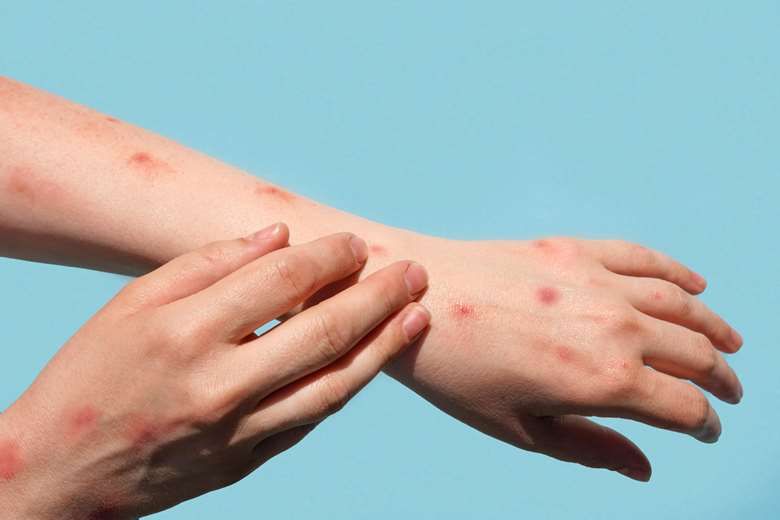Last Updated on July 15, 2022 12:02 pm by INDIAN AWAAZ

- Monkeypox is an infectious disease caused by a virus transmitted to humans by infected animals
- Transmission comes through close and prolonged contact between two people
AMN / WEB DESK
India has reported its first confirmed case of monkeypox after a 35-year-old man with a history of travel to the Middle East showed symptoms. Centre rushed a multi-disciplinary team to Kerala in view of the confirmed case of monkeypox there, according to an official statement.
“He is stable and all his vital signs are normal. We have asked all districts to be on alert,” she said.
Union health ministry from New Delhi has rushed a high-level multi-disciplinary team to Kerala to collaborate with the State Health Authorities in instituting public health measures in view of the confirmed case of Monkeypox in Kollam district of the state. The Central team to Kerala comprises experts drawn from National Centre for Disease Control, Dr. RML Hospital, New Delhi and a senior official from Ministry of Health along with experts from Regional Office of Health, Kerala.
Union Health Ministry said, the team will work closely with the State Health Departments and take stock of on-ground situation and recommend necessary public health interventions. The Ministry said, government is taking proactive steps by monitoring the situation carefully and coordinating with states in case of any such possibility of outbreak occurs.
Meanwhile, centre has written to all States and Union Territories reiterating some of the key actions that are required to be taken by them in line with Health Ministry’s guidance issued on tackling Monkeypox. In the letter, Union Health Secretary Rajesh Bhushan said that continued spread of Monkeypox disease globally calls for proactive strengthening and operationalisation of public health actions for preparedness and response against the disease in India also.
The Centre has called for orientation and regular re-orientation of all key stakeholders including health screening teams at Points of Entry, disease surveillance teams, doctors working in hospitals about common signs and symptoms, differential diagnosis, contact tracing and other surveillance activities that need to be undertaken following detection of a case, testing and clinical management. Screening and testing of all suspect cases must be ensured at points of entry and in the community. Health Ministry said, patient isolation, protection of ulcers, symptomatic and supportive therapies, continued monitoring and timely treatment of complications remain the key measures to prevent mortality.
